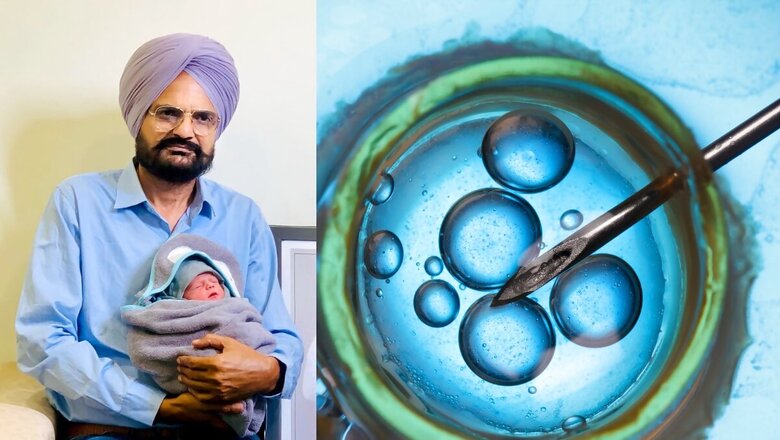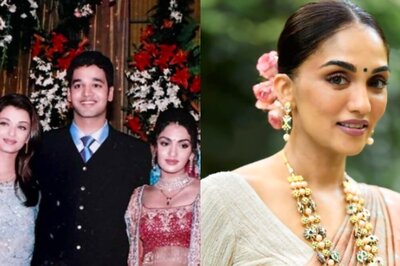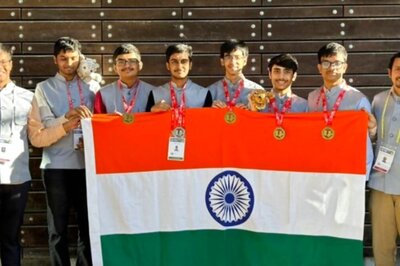
views
The Narendra Modi government’s move to seek details from the Punjab government about the birth of late singer Sidhu Moosewala’s younger brother has brought attention to in-vitro fertilization (IVF) being used by couples later in life. On Wednesday, the Ministry of Health and Family Welfare sought a report from the Punjab government concerning the regulations governing babies born through IVF technology, following the birth of a baby boy to Moosewala’s mother, who is 58 years old, through IVF.
However, the Artificial Reproductive Technique (ART) Regulation Act of 2021 sets the maximum age limits for women and men undergoing ART treatment at 50 and 55 years, respectively. As investigations into the procedure conducted on an older woman unfold, the controversy has shed light on the topic of having children later in life through IVF.
Multiple experts told News18 that in today’s day and age, they encounter a growing number of women in older age brackets embarking on the journey of parenthood due to shifting lifestyles, delayed marriages, and postponed decisions regarding starting a family.
However, it’s important to acknowledge the heightened risks associated with pregnancies at advanced ages, posing challenges for both the mother and the child.
What is IVF?
IVF represents a technological breakthrough that provides a solution for couples facing infertility challenges. It’s a type of assisted reproductive technology where fertilisation occurs outside the body, typically in a laboratory setting. During IVF, eggs are retrieved from the woman’s ovaries and then fertilised with sperm in a laboratory dish. The fertilised embryos are then transferred back into the woman’s uterus with the goal of achieving pregnancy.
According to experts, IVF is typically recommended for couples who have attempted simpler treatment options without success, or for cases where these methods are not viable, such as in the presence of blocked fallopian tubes or severe sperm abnormalities.
Not All Elderly Women Can Undergo IVF
While pregnancy is possible using IVF at any age, experts say that the quantity and quality of eggs deteriorate with time, making conception difficult. While there’s no strict age limit for IVF, success rates notably decrease after the age of 40 years.
Experts have also highlighted that IVF is a physically, financially and mentally draining procedure, even for younger women. Hence, for older women, it becomes even more difficult to cope, especially when they could already be suffering from other health issues such as thyroid, high BP or diabetes.
“Have we not delivered babies of women beyond the age of 50? Yes, we have. But those are very carefully selected cases,” Dr Rajeev Agarwal, IVF specialist and medical director at Renew Healthcare said while sharing his experience.
“In that case, women need to be mentally, physically very very strong and there are no medical complications. Also, the couple understands that the risks to the mother can be life-threatening as well,” he added.
However, those days are now over. Previously, there were no regulations or laws governing IVF in India. But there are clear laws now and the reason is clear – allowing unrestricted IVF procedures for women over 50 years of age may lead to serious complications, potentially threatening their lives.
Side Effects During Late Pregnancy
Several experts told News18 that IVF helps older women conceive but success rates decrease with age due to fewer eggs and higher risk of genetic issues. For instance, Dr Sulbha Arora, clinical director, Nova IVF Fertility, Mumbai, told News18 that the average age for menopause in India is 46 years, and accelerated deterioration in egg quantity and quality is seen almost 13 years before that, which would be early to mid-30s for most women.
She explained that women of advanced age may opt for IVF with donated eggs due to the natural decline in both the quantity and quality of a woman’s eggs as she ages.
Dr Nymphaea Walecha, senior consultant, infertility medicine at Fortis Hospital in Shalimar Bagh, said, “Success rates decline with age due to factors like decreased ovarian reserve and increased risk of chromosomal abnormalities.”
Another harm in using IVF in later years is that the percentage of chromosomally abnormal eggs also increases with age.
“Some women getting pregnant at older ages are also at a higher risk of having babies with chromosomal defects such as Down Syndrome. For some women, where their own eggs are completely depleted, pregnancy may only be possible using donor eggs,” Arora said.
In fact, the success rates of both achieving a pregnancy and having a healthy baby are higher using donor eggs because they are donated by younger women, often in their 20s. However, experts say there is still a risk to the health of both mother and baby if the mother is of an advanced age while carrying the pregnancy.
Dr Walecha from Fortis explained that possible side effects of IVF in later years, such as in the case of a 58-year-old woman, could include a higher risk of pregnancy complications like gestational diabetes, hypertension, preterm birth, and cesarean section delivery.
“Additionally, older eggs have an increased risk of chromosomal abnormalities, leading to a higher risk of miscarriage or genetic disorders in the baby. Thorough discussion and counselling are crucial to managing these potential risks,” Walecha added.
Echoing similar concerns, Arora from Nova IVF said that such pregnancies are full of complications like “miscarriages, low birth weight or premature birth” and it also requires a lot of physical and mental commitment from parents to raise the child.
The journey doesn’t end at childbirth. Rather, it marks the beginning of a lifelong commitment for parents to ensure the well-being of their child.
“Giving birth to a healthy baby is not the end of the journey, rather it’s the beginning. Always keep in mind that a child needs healthy and long living parents too. At later ages, parents may face issues in raising children due to physical weaknesses,” said Dr Tara Fotedar, founder and director, Invitro Fertility, New Delhi.

















Comments
0 comment